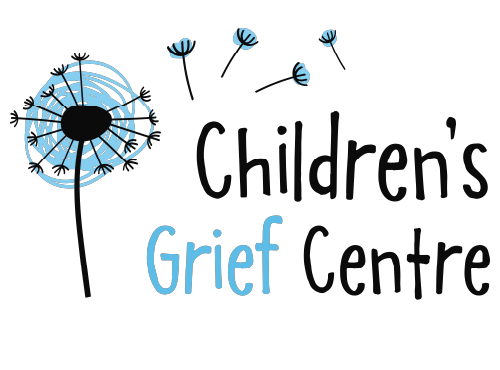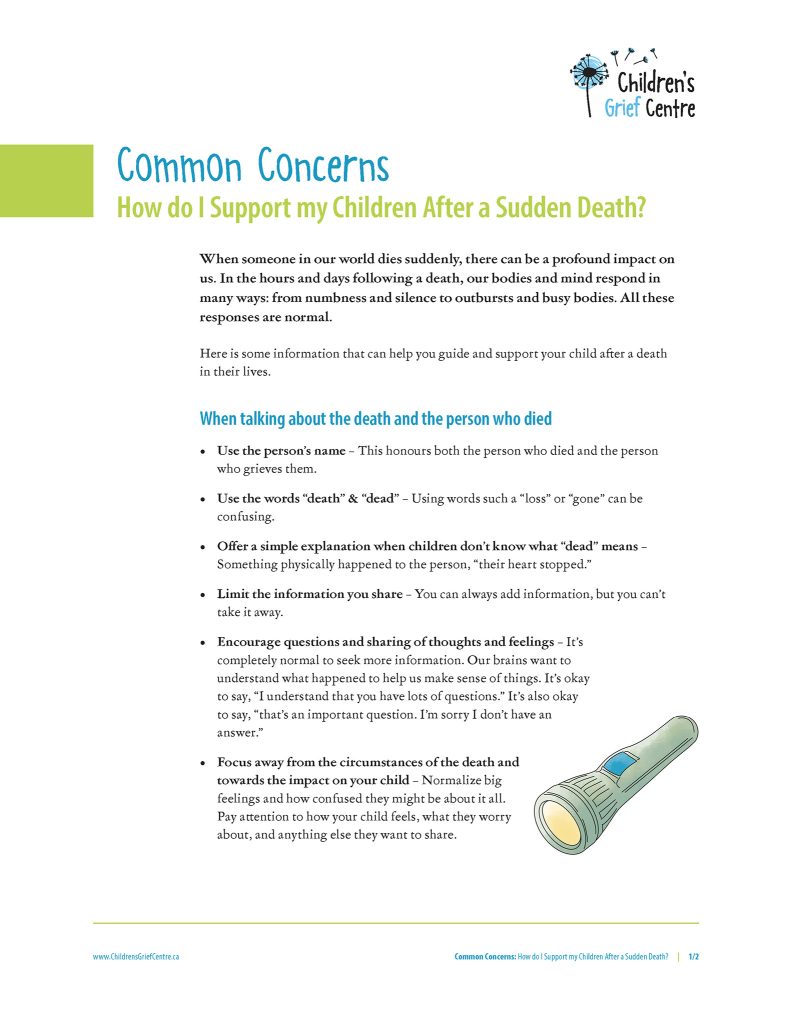Common Concerns
How do I Support my Children After a Sudden Death?
When someone in our world dies suddenly, there can be a profound impact on us. In the hours and days following a death, our bodies and mind respond in many ways: from numbness and silence to outbursts and busy bodies. All these responses are normal.
Here is some information that can help you guide and support your child after a death in their lives.
When talking about the death and the person who died
- Use the person’s name – This honours both the person who died and the person who grieves them.
- Use the words “death” & “dead” – Using words such a “loss” or “gone” can be confusing.
- Offer a simple explanation when children don’t know what “dead” means – Something physically happened to the person, “their heart stopped.”
- Limit the information you share – You can always add information, but you can’t take it away.
 Encourage questions and sharing of thoughts and feelings – It’s completely normal to seek more information. Our brains want to understand what happened to help us make sense of things. It’s okay to say, “I understand that you have lots of questions.” It’s also okay to say, “that’s an important question. I’m sorry I don’t have an answer.”
Encourage questions and sharing of thoughts and feelings – It’s completely normal to seek more information. Our brains want to understand what happened to help us make sense of things. It’s okay to say, “I understand that you have lots of questions.” It’s also okay to say, “that’s an important question. I’m sorry I don’t have an answer.”- Focus away from the circumstances of the death and towards the impact on your child – Normalize big feelings and how confused they might be about it all. Pay attention to how your child feels, what they worry about, and anything else they want to share.
Help them feel safe, supported, and cared for
- Provide ongoing and genuine presence.
- Create opportunities to be together – It might be downtime, catching up, playing, or hanging out.
- Recognize and respect that they may grieve differently from you or other family members – Gently seek to understand.
- Offer comfort through proximity, hugs, blankets, food, things that provide comfort to your child – They will appreciate the offer even if they refuse it. Keep offering.
- Offer reassurance, not promises – Reassure them about their safety and yours, but do not minimize their concerns. Keep routines for a sense of control and stability.
- Share some of the strategies you use when sad, confused, lonely, or frustrated – Let them know they are not alone and that everyone faces difficult times.
- Limit exposure to the news and social media – Images can have such a strong imprint on the brain and expose a child to more than they can manage.
- Remind them that they are not alone – They have you and other people in their lives to turn to for support, to talk, and to play.

For more information, a consultation, or to seek support for your child, teen, and family, contact us at 403-263-4525 or info@childrensgriefcentre.ca.




